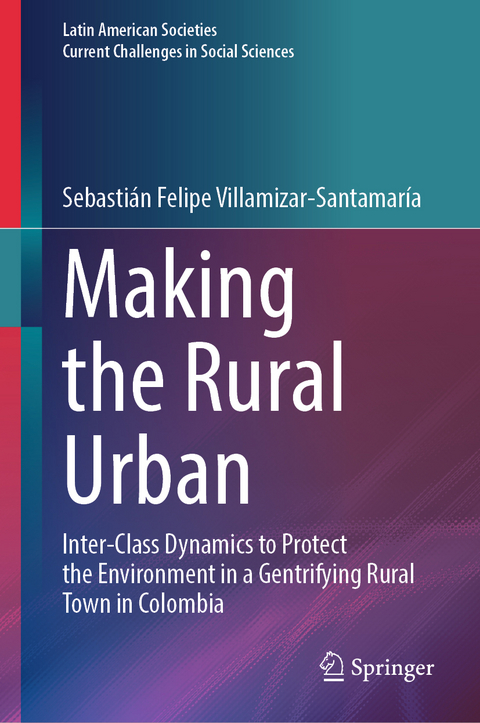
Making the Rural Urban
Springer International Publishing (Verlag)
978-3-031-58334-6 (ISBN)
This book takes the small rural town of La Calera, in the outskirts of the Colombian capital of Bogotá, as a case study to analyze how residents from different social classes - wealthier ex-urban newcomers arriving to traditionally peasant and rural areas - interact to decide how nature will be used in the face of further urban expansion. Contrary to the conflicts in other gentrification cases, including those of "green" gentrification, this book shows how newcomers and longtimers in La Calera use environmental concerns to bridge social class rifts and push the state to provide water, public space, and decision-making power.
Residents see abundant ecological resources like water and land around them, but they do not have access to aqueducts, green public space or power over planning decisions affecting the distribution of these resources. As a response, and to challenge the state more effectively, newcomers and longtimers create inter-class alliances through what the author calls third nature: the way residents try to both protect and keep using existing ecological goods. To do so, despite high levels of class inequality, residents had a similar goal of protecting ecological resources around them by intervening in the physical and political landscapes against a state that induces scarcity, selectively enforcing environmental policies to the detriment of Calerunos.
As cities all around the Global South continue to grow, urban expansion posits a threat to the environment by transforming agricultural and protected areas into denser residential or touristic spaces. Moreover, as natural resources become scarcer in the face of climate change, inequality might further existing environmental privileges and vulnerabilities. By examining closely how Calerunos bridge class inequalities for environmental reasons, this case highlights processes that inform other gentrifying rural spaces around the world.
Sebastián Felipe Villamizar Santamaría (he/él) is a Colombian sociologist and geographer working at the intersection of urban and environmental studies with a focus on inequality. He is an Associate Editor of the journal Nature Cities and was a postdoctoral researcher at the Center for Latin American, Caribbean and Latino Studies at the City University of New York's Graduate Center, and the lead editor at OpenGlobalRights. His academic publications use a wide range of methodological tools, from large-scale quantitative data analyses to in-depth ethnographic fieldwork, and he has also written op-eds for Colombian and international media and other public-facing works.
Chapter 1: Urbanizing the Mountains (Introduction).- Chapter 2: Layers of Nature and Population Change.- Chapter 3: The Greening Class and Its Influence in La Calera.- Chapter 4: Waterscapes and the Paradox of Growth.- Chapter 5: The Unfulfilled Promises of San Rafael Park.- Chapter 6: Wardens of the Mountains against Urbanization.- Chapter 7: Nature's Identity Crisis (Conclusion).
| Erscheinungsdatum | 10.05.2024 |
|---|---|
| Reihe/Serie | Latin American Societies |
| Zusatzinfo | XV, 166 p. 23 illus. |
| Verlagsort | Cham |
| Sprache | englisch |
| Maße | 155 x 235 mm |
| Themenwelt | Naturwissenschaften ► Biologie ► Ökologie / Naturschutz |
| Naturwissenschaften ► Geowissenschaften | |
| Schlagworte | Colombia • Cross-class Alliances • environmental inequality • environmental protection • global South • Latin American cities • Rural Gentrification • urbanization |
| ISBN-10 | 3-031-58334-5 / 3031583345 |
| ISBN-13 | 978-3-031-58334-6 / 9783031583346 |
| Zustand | Neuware |
| Haben Sie eine Frage zum Produkt? |
aus dem Bereich


